Happy Anniversary
A few months back Katie and I celebrated our wedding anniversary. The celebration was what would be expected for such an occasion: gifts (it was our “copper” anniversary according to the internet), flowers, a dinner out (specifically without the boys), and a look back at our wedding photos.
That’s the very thing we tend to do on such occasions – look back. There’s nothing wrong with taking time to come together to reflect on the past, which, for some reason always seemed easier. We celebrate anniversaries all the time if you really think about it, every year is full of days when we take time to reflect on past people and events in our lives, individually and collectively. Many of these events we call “Holidays.”
Within the Lutheran faith we take time every year to celebrate our own past as we commemorate the lives of the reformers from whom we draw our heritage and faith marking our calendars for October 31st. It was on this day in the year 1517 that an Augustinian monk (purportedly) posted a series of talking points on the church door in Wittenberg know as the “95 Theses.” It is this moment that is widely recognized as the dawn of the Reformation. Yearly we commemorate this event with festival worship complete with special readings and prayers along with the color red (a sign of the Holy Spirit).
This year Reformation Sunday falls on October 29th (my birthday), and if my math is correct, it will be the 500th anniversary of this moment that forever changed the institutional church. The question for me becomes, “How are we to celebrate?” I already checked and it turns out there’re no designated gifts for 500th Anniversaries, maybe moon rocks or wiener schnitzel, who knows?!? Outside of gifts we’re taking a lot of time to reflect back on those 500 years and the legacy Luther and those Reformers left behind. From special displays (in museums and even our café), to confirmation curriculum, and special worship – we are finding ways to commemorate the past, which is very important work.
I think the one thing I need to do is remember that the leaders of this faith movement we’re commemorating were not “reformed,” but “reforming,” and that’s an important distinction to make. While the former is in the past, the latter is ongoing and active, just as the church today is yet ongoing and active in the world. The work of the past 500 years has molded us into who we are, but now I wonder where we will continue growing, changing ,and reforming to become the church (collective body of Christ) that we’ve been called to be. I am excited to look at the past, but now is a time to look ahead as well. How will we keep reforming? What are the social, political, economic forces that require our attention as people of faith (a la the Luther and the reformers of yesteryear)? I pray that this year’s 500th Anniversary encourages us to ask the hard questions about our shared faith, that we may continue this ongoing process of reforming. Join me as we look to the next 500 years together as the growing, living, reforming church.
God’s Peace,
Pr. Zak Wagner
